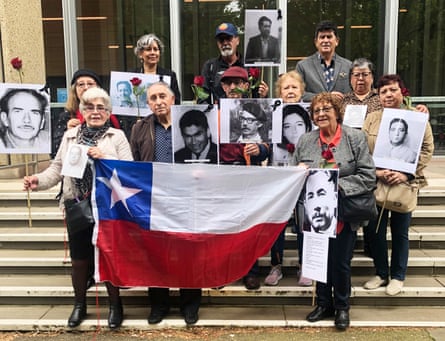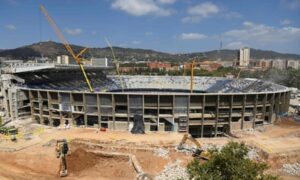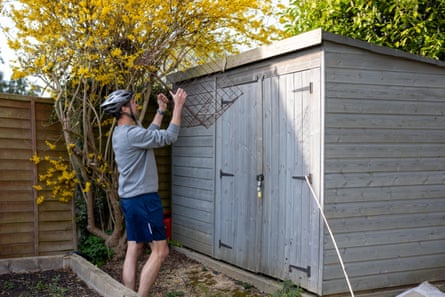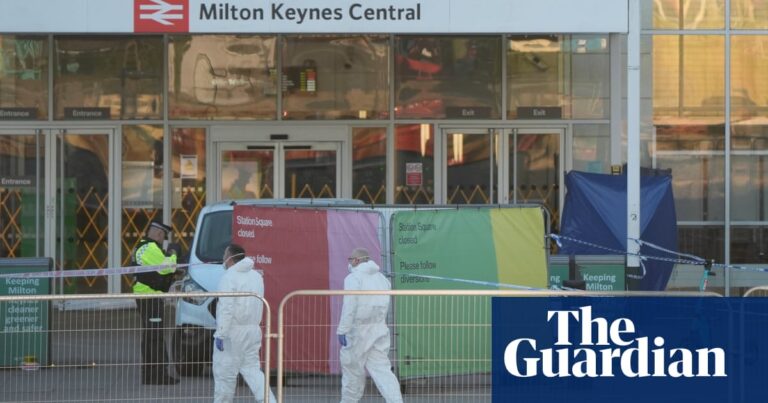A former Bondi nanny and cleaner accused by Chile of being a torturer and kidnapper for Pinochet’s military dictatorship in the 1970s has launched a last-ditch legal appeal to avoid extradition.
Adriana Rivas, 70, has been in prison in Australia since 2019, when she was arrested on an extradition request from Chile – seeking her for trial on seven counts of aggravated kidnapping relating to the disappearance, and presumed murder, of seven members of Chile’s communist party who disappeared in 1976.
Party leader Victor Díaz was abducted by Pinochet’s secret police, the Dina (Dirección de Inteligencia Nacional, or National Intelligence Directorate) in May 1976. Six more party members were kidnapped off the streets of Santiago in December – the youngest, 29-year-old Reinalda del Carmen Pereira Plaza, was six months pregnant when she disappeared.
Documents from Chile’s appeal court provided to Australian courts allege Rivas worked as an agent of the Dina’s shadowy Lautaro Brigade (established to target members of the communist party) and was involved in the torture and disappearance of political opponents of the military dictator.
-
Sign up for Guardian Australia’s breaking news email
Rivas’s legal team have fought Chile’s extradition request over half a decade, including appeals to Australia’s federal court and the high court (which was ultimately abandoned). They argued the allegations against her were “political” and therefore not extraditable, and that the people were not kidnapped but legitimately arrested.
At each stage, courts found she was eligible for extradition – the final decision on whether she would be surrendered to Chile lay in the hands of Australia’s attorney general.
But Rivas has now launched a last-minute challenge in the federal court, asking the court to declare government’s decision to surrender her to Chile “void and of no legal effect”.

Her application, which indicates a decision to surrender her had been made, asks the court to restrain government ministers “directly, or by their agents, officers or delegates, from surrendering Ms Adriana Rivas to the Republic of Chile”.
Lawyer Adriana Navarro, representing the families of the seven people disappeared, told Guardian Australia they were “mortified” they had not been informed of the apparent decision to surrender Rivas, nor that she had filed another appeal to block the extradition.
“They’ve had enough, they find it disturbing that they have to learn through the media that this is happening,” Navarro said.
She said the families had been told “nothing whatsoever” through official channels about the progress of Rivas’s case over the past five years, and felt “mocked” by a system which kept them uninformed.
Rivas first came to Australia in 1978. In Chile, she worked as a secretary at the Simón Bolívar Centre, a secretive compound on the outskirts of the capital later discovered to be the Dina’s interrogation, torture and extermination site. She has insisted her role was administrative and she knew nothing of the crimes that occurred at her place of work.
When she travelled to Chile to visit family in 2006, she was arrested and questioned. She was held in custody for three months and released on bail under strict conditions, including a prohibition on leaving on the country.
But in 2007, while Rivas was living in Chile on bail, a man called Jorgelino Vergara was arrested and charged with Diaz’s murder. In 2010, he gave testimony that directly alleged Rivas participated in the torture of prisoners at the Simón Bolívar Centre.
A Chilean police report specifically names her as a brigade member involved in the commission of “forced entries, detention, interrogations and application of torture”.
after newsletter promotion
Metal bunk beds were rigged with electrical current and detainees repeatedly shocked all over their bodies, according to the police report, which also detailed they were injected with unknown substances or “suffocated by asphyxiating them with plastic bags”.
Chile’s interior ministry wrote in court documents: “It is important to emphasise the cruelty of the crimes committed.”
Rivas has expressly denied these allegations and any involvement in torture, and she has not been convicted of any crime.
Vergara’s testimony ultimately led to the conviction of more than 70 Dina agents and officials of the Pinochet regime. The same year he agreed to give evidence against the Dina, Rivas escaped over Chile’s land border into Argentina and flew back to Australia.
In a 2013 SBS interview, she said she had worked at the Simón Bolívar Center, but insisted she was not involved in interrogating detainees.
“Not guilty. Not guilty. If I … look, I never had the opportunity to be where the detainees were. Never, understand? All my work was as a secretary or security. Nothing more.”
In the same interview, she defended the use of violence against opponents of the regime. “Everyone knew they had to do that to the people in order to break them because communists would not talk. It was necessary.”
Rivas said she did not regret working for the Dina.
“For me it was a job. It was a chance to survive. Understand?”
No hearing date has been set for the federal court application to be heard.
Source: theguardian.com


















